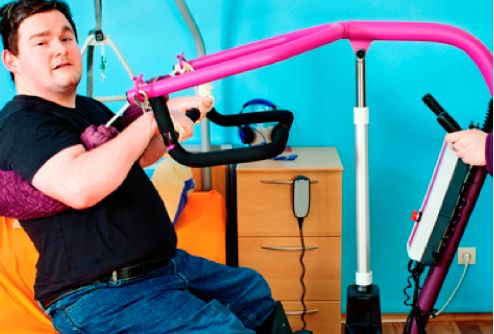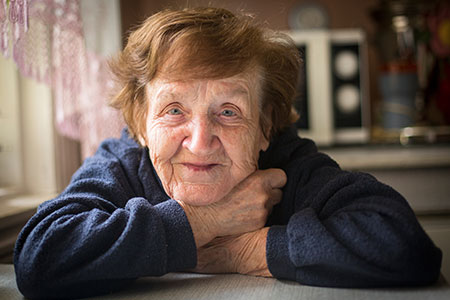Occupational therapy, often referred to as OT, is a healthcare profession that focuses on developing, recovering, or maintaining the daily living and working skills of people with physical, mental, or cognitive impairments.

An occupational therapist's job is to help people of all ages to overcome any permanent loss or lack of physical, sensory, mental or communication function.
Their aim is to help people improve their ability to function as independently as possible so that they can participate in whatever activities are meaningful and important to them. Occupational therapists do this mainly by identifying and eliminating environmental barriers to independence and participation in normal daily life.
Whilst occupational therapy services are available free of charge from the NHS and social services, the independent occupational therapists listed in the directory hosted on this website will charge a fee for their services. Independent occupational therapists usually provide services that are not available from the NHS or social services and/or have no waiting lists.
Occupational therapists help people with disabilities to choose and use special equipment like wheelchairs and aids for mobility, eating, dressing or any other activity. They also help to adapt people’s homes and workplaces to accommodate their individual needs.
Occupational therapists can also help their clients to improve basic skills like motor functions or reasoning abilities so that they can perform essential activities like dressing, cooking or work and leisure activities like using a computer. For example, they might help clients use physical exercises to improve strength or dexterity, mental exercises to overcome difficulties with memory, or special exercises to help overcome sensory or communication problems.
Occupational therapists can help people by designing new ways for them to perform the tasks or leisure activities they need or want to do. Or they can advise people on alternative methods, techniques or tools they can use to achieve what they want to achieve.

Occupational therapists can help children with a range of special needs. They usually evaluate an individual child’s abilities and then recommend and provide them with special equipment or therapy. They may provide early intervention therapy services to babies and toddlers who have, or are at risk of having, developmental delays. This may involve helping them to develop social or listening skills, or to learn dressing, grooming or coordination skills. In order to help school-age children participate as fully as possible in educational activities, a therapist may work with children individually or in small groups in the classroom. Or they may advise teachers or help develop a special needs curriculum.

Some occupational therapists assist in cases where people are pursuing a civil claim for personal injury resulting from an accident or negligence. Occupational therapists who undertake this work are known as medico-legal practitioners. Their role is to assist the Court by undertaking an objective assessment of how the person making the claim has been affected. The occupational therapist will advise - and often give evidence as an expert witnesses in Court - on the rehabilitation and life-long special arrangements, care and equipment needed and associated costs. This helps the Court decide the compensation award. Occupational therapists may be instructed by either the claimant's or defendant's lawyers; or jointly instructed by both.

Occupational therapists are often appointed as case managers for people who need help with managing their lives after sustaining a serious injury (e.g. spinal or brain damage). A case manager's job is to support an injured person with their rehabilitation and/or recovery. The case manager co-ordinates all the different services and expert help the person needs. This can involve helping them find a new home or adapt their existing one, access education or find new employment opportunities. Occupational therapists are often chosen to act as case managers because they are trained to understand people’s practical, social and emotional needs, as well as their medical needs. Case managers often work with the solicitor who is involved with the injured person’s compensation claim, and their fees are usually paid out of the person’s compensation award.

Some occupational therapists help people whose ability to function at work has been affected by illness or disability. They may do this by assessing the client’s needs and the work environment in order to collaborate with the client and the employer to make appropriate modifications to the work environment.

Occupational therapists can help elderly people lead active and independent lives. They do this by helping them (and/or their carers/relatives) choose and use equipment that will assist them in their day-to-day activities and/or make appropriate modifications to their environment (e.g. an occupational therapist may work with a frail elderly client to identify and overcome hazards in their home in order to minimise the risk of falls or other accidents).

Occupational therapists may support people with mental health conditions or learning difficulties by helping them cope with daily life. They may help people with learning difficulties to develop life skills (e.g. time management, budgeting, shopping and using public transport). Or they may help people living with a mental illness to develop strategies to help them manage their condition.

Some occupational therapists work with patients who have terminal illnesses (e.g. cancer), providing them with various means to live with their deteriorating condition and make the most of their limited life.

Occupational therapists sometimes work together with other health professionals to support individuals living with chronic pain to develop active pain management strategies (e.g. relaxation and goal setting).